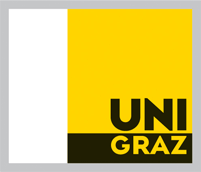Centre for Southeast European Studies Visiting Fellowship Programme

The Centre for Southeast European Studies of the University of Graz is currently accepting applications for Visiting Fellows for the academic year 2025-26.
The Centre provides research facilities for fellows, including a working place, access to the library and full participation in the activities of the centre for a period of one semester (4 months, either October-January or March-June). Visiting Fellows will receive a small budget to organize a public event or lecture.
Visiting fellows are expected to present their work in a research seminar, discuss their research informally with members of the centre and contribute a working paper to the centre's working paper series and write a contribution to the research blog of the centre. Visiting fellows are also encouraged to contribute to seminars, classes and other teaching and research activities of the centre.
The Centre does not provide financial assistance, but will support applications to different scholarship programs for visiting scholars, including the Ernst Mach Scholarship (http://www.oead.at/mach).
Please submit a CV, a one page research plan and names of two referees either in German or English to Tanja Bilaver (tanja.bilaver@uni-graz.at) by 08th January 2025. We welcome applications from advanced doctoral students, post-doctoral researchers and senior academics. Applicants from a variety of disciplines (including history, law, political science, law, anthropology, sociology, economics) will be considered. We also strongly encourage researchers engaged in comparative work (both within the region and between regions and countries) to apply.
For informal inquiries contact Florian Bieber (florian.bieber@uni-graz.at)
https://suedosteuropa.neu.uni-graz.at/de/persoenlichkeiten/visiting-fellows/

